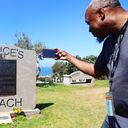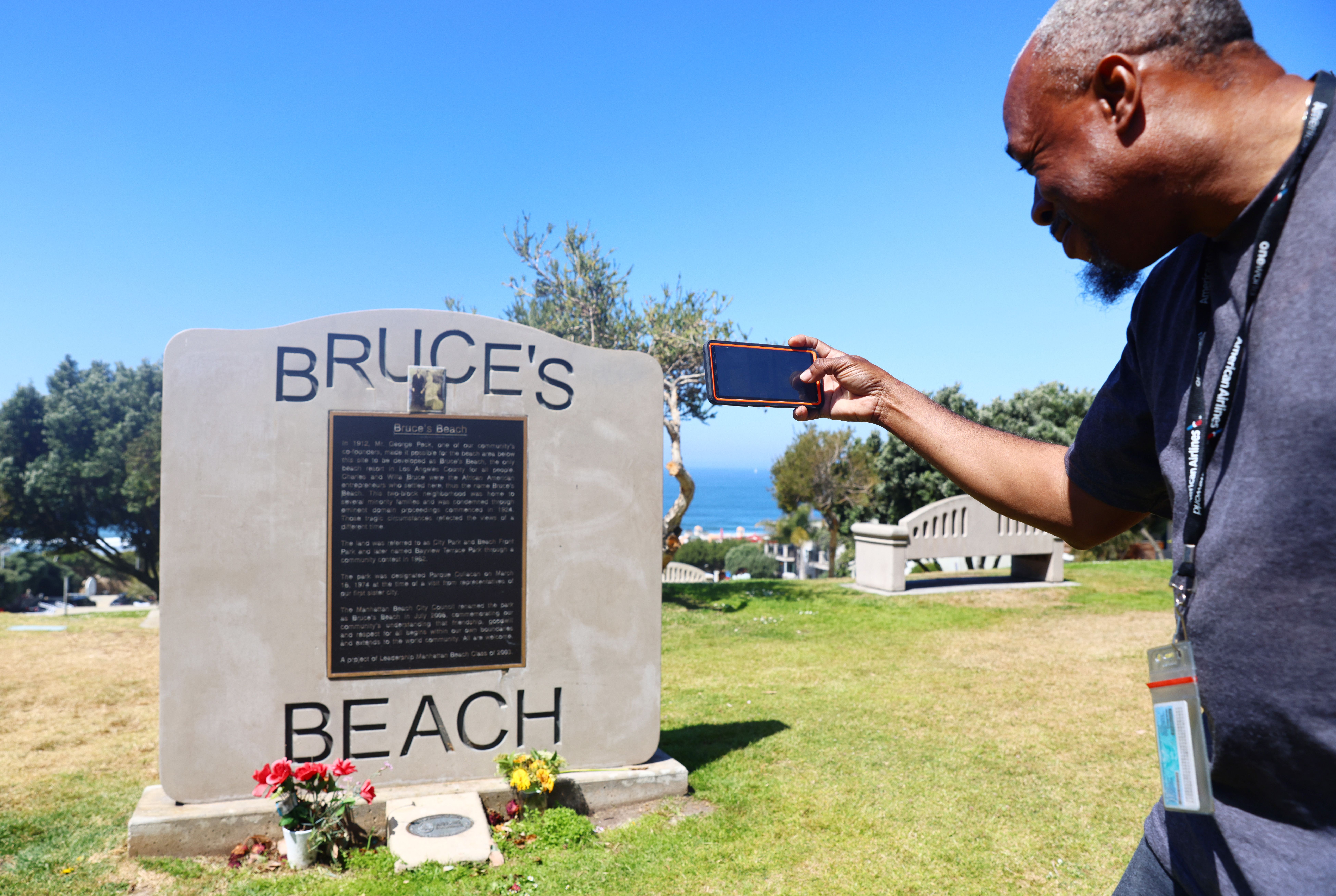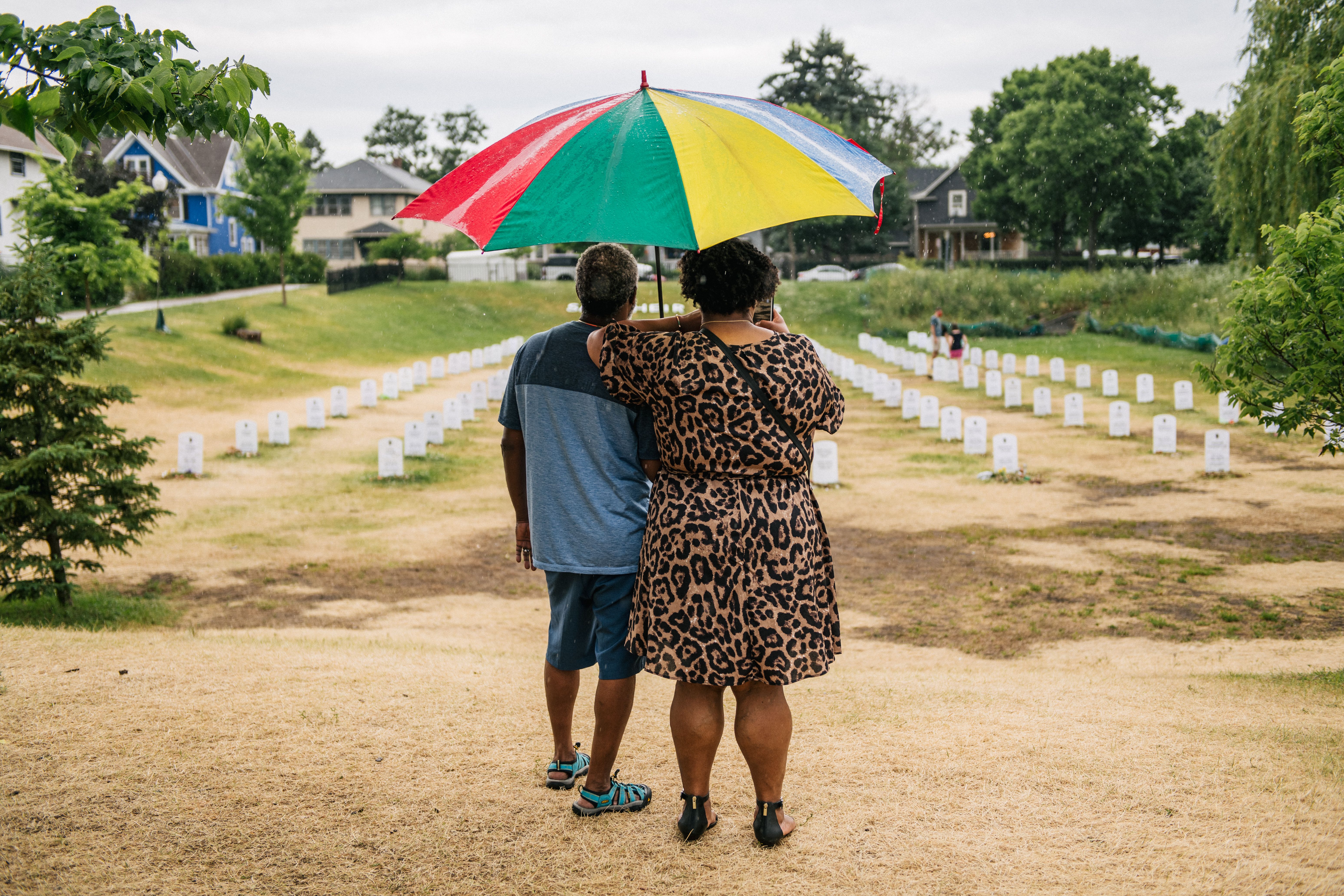The rise of Black heritage tourism

Plazas where enslaved people were once bought and sold and spots where civil rights marchers were beaten have become sought-out destinations for visitors amid a rise in Black heritage tourism.
Why it matters: Following the murder of George Floyd four years ago, advocates had helped transform abandoned sites of racial pain into places of pilgrimages to pay homage to those who fought for social justice.
The big picture: Cultural heritage tourism is one of the fastest-growing segments in travel.
- It involves "traveling to experience the places, artifacts, and activities that authentically represent the stories and people of the past and present," according to the National Trust for Historic Preservation.
Details: For years, many sites linked to crucial moments in Black history sat forgotten, abandoned or visited by just a few diehard history buffs.
- Recently, once-overlooked places like the community of Africatown in Mobile, Ala., have become a must-visit for Black heritage tourists.
- Descendants of the Clotilda — the last known U.S. slave ship to bring captives from Africa — now offer "The Africatown Experience Boat Tour" every month. Visitors can see the surrounding area and hear stories of resilience.
- Florida has located civil rights sites in the state for visitors, Mississippi has mapped the Blues Trail, to be explored with a Spotify playlist, and advocates in Texas are working to locate sites linked to the Underground Railroad to Mexico.
The National Park Service lists more than 80 sites from Indiana to New Jersey connected to the traditional Underground Railroad that people can visit.
- Sites connected to enslavement and abolition have also been transformed into parks.

Zoom in: Boston is among the cities honoring previously ignored historic sites.
- Clennon L. King, whose father was an attorney for Dr. Martin Luther King Jr. (the two families are not related) and other civil rights activists, has compiled a list of at least 21 sites related to the Kings' early lives in Boston.
- At his urging, city officials recently approved a resolution to establish the King's Heritage Trail. Plaques have gone up highlighting the former Twelfth Baptist Church site and the Lincoln Apartments, where the Kings lived as newlyweds.
Yes, but: Beyond Boston's Black Heritage Trail, the region's history of Black-led abolitionist efforts, jazz musicians and civil rights leaders has all but faded into obscurity.
- Most of it would remain buried were it not for Black historians' and other educators' efforts to unearth the evidence.

What they're saying: "A lot of our desire as Black folks is to really understand where we come from," tourism consultant Kelly McCoy told Axios.
- Black heritage tourism has become popular as an inexpensive opportunity to "tell our true narrative," McCoy said.
- "You get a better sense of the place, the space, and possibly. You can almost imagine going back in time and see what it would have really looked like. You can talk to the ancestors."
What's next: The "National Monument to Freedom" — a new monument honoring 4 million enslaved Black people who were emancipated at the end of the Civil War — is expected to open next year in Alabama.
- The monument will be part of the planned Freedom Monument Sculpture Park — set to open in early 2024 — which is a 17-acre site of large-scale sculptures that will tell the story of enslaved Black Americans.